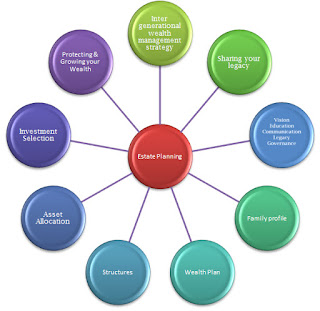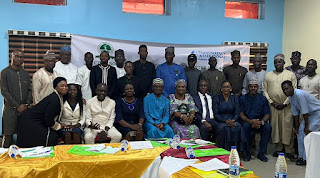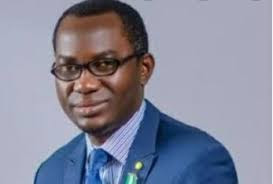2018 NDHS: Nigeria Is Making Improvement Towards MDGs
The 2018 Nigeria Demographic and Health Survey
(NDHS) revealed gaps in Nigeria’s performance on the SDGs targets and
indicators that would be used by United Nations (UN) member states to set their
agenda of political policies over the next 10 years.
The SDGs are
collections of 17 global goals designed to be a “blueprint to achieve a better
and more sustainable future for all.” The SDGs, set in 2015 by the United
Nations General Assembly and intended to be achieved by the year 2030, are part
of UN Resolution 70/1, the 2030 Agenda.
However, the information provided by the 2018 NDHS
is essential for programme managers and policymakers to evaluate and design
strategies for improving the health of Nigerians.
Regrettably, the estimates of the latest survey on
fertility levels, marriage, sexual activity, family planning, breastfeeding
practices and nutrition, despite certain marginal progress, fell below
expectations of SDGs after five years of initiation.
Similarly, its evaluation of childhood and maternal
mortality, maternal and child health, malaria, domestic violence, disability
and female genital mutilation leaves much to be desired.
Nigeria Needs N126 trillion For SDGs
Commenting on the gaps revealed by the 2018 NDHS on
the state of children, women and general human development against the SDGs,
Dr. Davis Omotola, Independent Development Consultant, said that Nigeria
requires N126 trillion ($350 billion) to meet the SDGs set for 2030.
Omotola said the NDHS further showed that the
current public sector gap was estimated at 36.7 trillion ($100 billion) after
all other possible incomes, including oil revenue and the Abacha loot, have been
pooled together.
The Independent Development Consultant spoke during
during a two-day workshop on Media Dialogue for Editors and Reporters on
Data-Driven Reporting and Dissemination of NDHS 2018 Result and SDGs in Port
Harcourt, River State, organised by the Child Rights Information Bureau and the
Federal Ministry of Information, recently.
In his presentation, titled; ‘Nigeria’s Progress
towards the SDGs: Why Nigeria may not meet the SDGs,’ he bemoaned growing
poverty amid population explosion and insecurity.
He lamented that 70 per cent of the poor people in
Nigeria was found in 10 states which all happen to be in the North.
Visibly worried that lack of effective policies and
budget constraints could serve as barriers for achieving the SDGs in the next
10 years, Omotola maintained that Nigeria needs a large chunk of money to
achieve the 17 SDG goals.
“We have 10 years, but Nigeria does not plan. We are
in a country where people just wake up and whatever happens, is what we do. We
have been talking about insecurity, what is the plan to solve it? We should
have a robust plan.
“There are so many plans and policies; we have even
the national population policy which proposes four children per family.
We are talking about quality education for all, but
we have different definitions of education in different parts of Nigeria.
“We just developed the Economic Recovery and Growth
Plan (ERGP) by 2017, the SDG has been on since 2016, the discussion started
from 2012 yet when we were doing ERGP, we didn’t factor in the SDGs except we
now begin to realign the ERGP into the SDGs.
“The SDG is about leaving no one behind and to
achieve that we need N126 trillion ($350 billion) and our total income in 2018
was N146 trillion ($398 billion) so it means that we should just spend all that
money to achieve the SDGs.”
He asked rhetorically; “The President said he wants
to lift 100 million people out of poverty, we already have 98 million poor
people as at 2018 and 70 per cent of them we know where they are, so what
programme are we putting in place for them?
“Most of our children do not have an education that is
skill-based that will make them to get the right employment.
“It’s not all these small intervention programmes,
we must have policies that are effective, policies that are implemented and of
wide coverage.”
Immunisation
Maureen Zubie-Okolo, United Nations Children’s Fund,
(UNICEF) Monitoring and Evaluation Specialist, while reviewing the 2018 NDHS
figures on immunisation at the event decried the percentage of children that
have received all-round immunisation in Nigeria between 2008 and 2018, noting;
“It remains very low at 31 per cent.”
Zubie-Okolo said; “The percentage of children who
received none of the basic vaccinations declined from 29 percent to 19 percent
during the same period in review.
“But, the percentage of children age between 12 and
23 months who received all basic vaccinations increased from 23 percent in 2008
to 31 percent in 2018.”
She explained that immunisation coverage was one of
the indicators used to monitor progress towards a reduction in child morbidity
and mortality as it was one of the most cost-effective public health
intervention.
The Monitoring and Evaluation Specialist said that
the objective of the NDHS was to provide estimates on fertility levels,
marriage, sexual activity, family planning, breastfeeding practices and
nutrition.
Others she said were childhood and maternal
mortality, maternal and child health, malaria, domestic violence, disability,
and female genital mutilation.
“This information is essential for programme
managers and policymakers to evaluate and design programmes and strategies for
improving the health of Nigerians,” she said.
Elaborating, she noted that the latest NDHS (2018)
was the sixth one in Nigeria since 1990 as part of the Demographic Health
Survey programme.
According to her, the sample design for 2018
NDHS is to provide estimates at the national level, for six zones, for 36
states, the Federal Capital Territory (FCT), and for urban and rural dwellers.
She, however, stressed that while the 2018 NDHS
trends showed an improvement, they still fell short of SDGs Three which the target
is for more than 90 per cent coverage of all basic vaccination among children
age 12 to 23 months.
Breastfeeding Within One Hour Of Birth Records Nine
Percent Increase In Five Years
According to the 2018 NDHS, the percentage of
Nigerian children who started breastfeeding within one hour of their birth only
increased by nine percentage points since 2013, from 33 percent to 42 percent.
Experts say that initiation of breastfeeding within
the first hour of life is important for both the mother and the child.




Hello, ma. Please, I am trying to contact you concerning Dr Emeka Chugbo family members. Please, kindly get in touch if you can. Thank you very much.
ReplyDeleteThe identifier is non-compound and will deliver a three-second splash of water to frighten the pest off. Pest Control Deltona
ReplyDeleteObviously, if the issue is amazing, you may need to bring in the experts. Pest Control Tampa
ReplyDeleteThere will likewise typically be a 'Go/No Go' choice now made by the senior chiefs.túlméretes szállítás Europa-Road Kft.
ReplyDelete